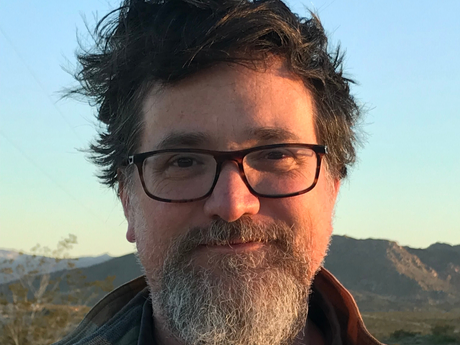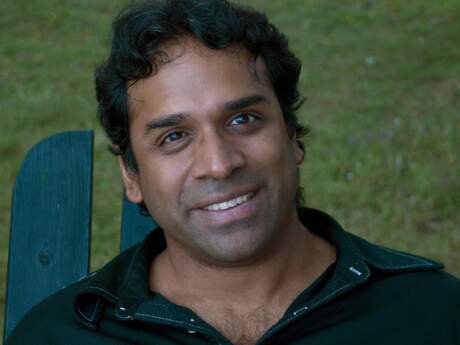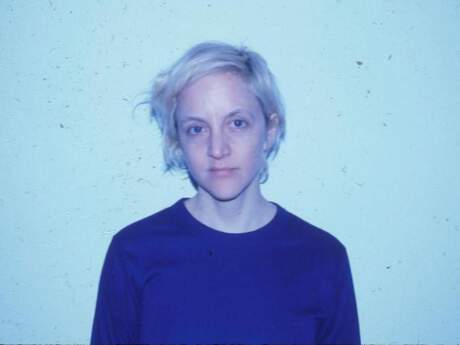Q & A: American Poetry
Q & A American Poetry: Anthony McCann

In what ways might you consider yourself an American poet?
All. I mean that sincerely. I don't mean to say that I'm super proud of it. Or in any way ashamed.
Do you believe there is anything specifically American about American poetry past and present? Is there American poetry in the sense that there is said to be American painting or American film?
I think what it is that makes American poetry American is not an object which can be isolated in any honest way because it's enmeshed in every aspect of the work. It's the voices, the landscapes, the thingyness of the words—of American English word-making (assuming American to mean North American Anglophone here). It's the expansiveness, the contractedness, the attentiveness, the obliviousness, the self-importance, the modesty, the violence and tenderness and ecstasy, the wild humor and the severe solemnity, the history and the absence of history, the noise and the silences (and the 'quietude'); they are all of or stained by life on this continent and in this language. Maybe to try to separate what is American from American poetry is like asking what's green about grass. Or maybe it's like asking what's green about green paint. Or maybe it's like asking what's wood about trees. But my short answer to this two part question would be "yes" followed by "yes."
What role do historical and geographical factors play in American poetry and in your work specifically? What other aspects of your life (for instance: gender, sexual preference, class, ethnicity, religious beliefs) relate to your sense of being a poet in America?
A difficult question, this one. Hard to answer non-reductively. It's hard to answer without subtracting life from poetry—even though those factors seem at first to point directly to life as it is lived in particular circumstances. Which is where life is always lived. To state clearly how crucial all those things are in American poetry in general and in my work in particular, and I think they are, while at the same time insisting that their power is not wholly determinative or reducing the discussion of the factors themselves to how they are or are not determinative is very hard to do. To talk about poetry exclusively in those terms (of history, place, race, gender, sexuality, class, faith and so on) runs the risk of reducing the discussion to, paraphrasing Emmanuel Levinas, a judgment of the dead by the not-yet born. It can turn living poetry into a dead object of history, or social science. It can reduce it to a behavior or an illustration in a textbook. A textbook of American Heritage. It can sew poetry up in that quilt, cover it with that blanket. I guess I mean flag. But to disregard or diminish issues of gender, or place, or race, or sexual preference or any of the other factors mentioned in the question is to similarly excise life and sentience from a discussion of poetry. Let's imagine a discussion of Dickinson's "I heard a Fly buzz-when I died-" that excludes all mention of her faith, or of 19th century practices regarding death. Then imagine one that only speaks of the poem in relation to her religion, and her historical circumstances. Both could be fairly rich discussions, yet they would exclude precisely that searing, unparaphrasable affect that is the poem's sentience, its particular expiring consciousness. In other words: the very life of the poem.
Is there something formally distinctive about American poetry?
It seems to me the American use of collage is distinctive from its uses elsewhere. It, over time, has become less and less foregrounded. It has become a natural "speaking" voice in poems in a way or to a degree I personally haven't seen in poetry from elsewhere. But my sample is limited.
What significance does popular culture possess in your sense of American poetry?
I'm not entirely sure what popular culture means in this context. Certainly the voices of movies and television and popular music are collaged into the work of many of the best 20th century American poets. And this continues to be true here in the 21st. And that seems significant, certainly.
When you consider your own "tradition," do you think of American poets, non-American poets? Which historic poets do you consider most responsible for generating distinctly American poetics?
Mostly I think of American-Anglophone poets when I think of my own "tradition" or the tradition/s I feel myself writing out of. But there are also the French or Francophone. And the English Romantics, especially Coleridge. All that said, the poet who has marked my life the most would be César Vallejo. Who was, of course, an American.
As far as generators of distinctly American poetries, limiting "American" here again to the Anglophone, I would say Whitman, Dickinson, Stein, Williams, Hughes, Ginsberg, O'Hara, Creeley, Ashbery, Berrigan, Myles and others whom one might link to them without too much strain. I know I'm leaving out many people. I guess that's what lists are for.
What are your predictions for American poetry in the next century?
I have none save that I'm sure some of it's going to be great. What in particular will characterize this coming greatness I have no idea. But I hope to be around to read at least some of it.
Published 2010.


